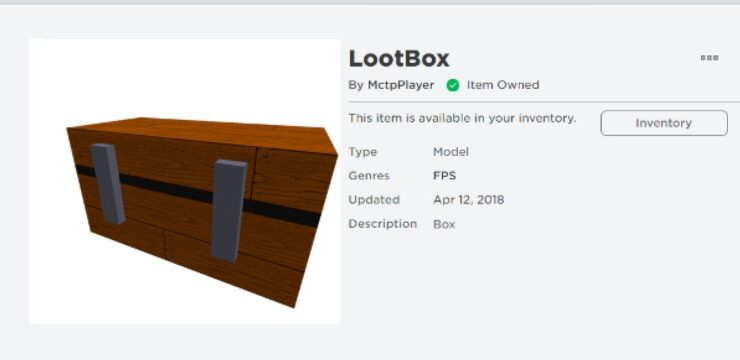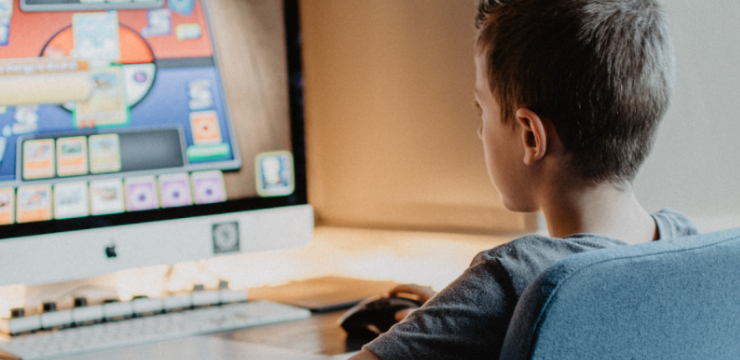Explained: What are Loot Boxes?

Loot boxes are mystery bundles of virtual items related to a video game. They can be won by a gamer as a reward or can be purchased with real money. If your child likes to play video games, then chances are they have encountered a feature called “Loot Boxes”. The contents may allow you to unlock special characters, equipment, or “skins” which can change the appearance of something in the game or allow access to new levels.
They differ from other in-app or in-game purchases because the contents of the loot box are unknown before you purchase it. With other in-game purchases you choose exactly what you are buying and know its value, but the contents of a loot box are entirely down to chance – it could be something valuable in the game, or it may not.
Loot boxes are common in many games, including FIFA, Overwatch, Roblox and Mario Kart Tour, and while the loot boxes are called different names depending on the game, the premise behind them is the same.
Why are they popular with young people?

Loot boxes can seem exciting – the possibility that you will get something valuable or rare that will enhance the gaming experience. An item could make your avatar or weapon unique, or it might let you progress to another level and allow access to higher quality items in the game.
What are the risks?
While loot boxes are a relatively new phenomenon, they have attracted controversy, including concerns that they may be exposing young people to gambling. The comparison of loot boxes to gambling are based around the randomised chance involved in the outcome of what a user will receive in the contents, effectively making it a game of chance or a lucky dip. Countries such as Belgium, the Netherlands, Australia and China have created restrictions around the use of loot boxes or banned them entirely. Although there have been calls to regulate them under gambling legislation in Ireland, there are currently no restrictions on the sale of loot boxes in video games here.
As with any in-app purchase, there is also the potential for children to rack up significant costs within games. Some children can easily make purchases without even realising that it is costing real money. Parents should review the settings on in-app purchases on the devices, to avoid getting surprise charges.

Advice for Parents
- Show an active interest by letting your child show you the games that they like, and how they work. This will not only help you to understand why they enjoy it, but also how the virtual items such as loot boxes may or may not enhance the gaming experience. Use the opportunity to talk them through decisions about the value of an item, and to discuss why they are being encouraged to buy something without knowing exactly what they will receive.
- Make sure that your child understands that loot boxes can cost real money and explain that some gambling-like features may appear like harmless entertainment but are actually designed to encourage more play and spending. Talk to your child about the similarities of some in-game features to forms of gambling and the potential harmful effects, and encourage them to make informed decisions.
- Establish rules around in-app purchases, and review device settings to enable spending limits or to turn off in-app purchases completely.
- Most games have ratings which you can review to see if they are age appropriate, whether they contain elements that encourage or teach gambling, and in-app purchases. Ireland is among over 35 countries who are members of (PEGI) the Pan-European Game Information organisation which offers an age rating system to support parents when making decisions on buying computer games.
- You know your child better than anyone else, so you are in a good position to notice if there is any change in their behaviour. Though this may not necessarily mean that they are developing a problem with gambling-like behaviour, it could help you to know when to look for more support for you and your child.
- Remind your child that if they are concerned or unsure about anything that can come to you for guidance and support.
Useful links:
To get a better understanding of gaming generally, read Play It Safe – An Introductory Guide to Online Gaming for Parents.
Read our Explainer Guides to popular games such as Fortnite and Roblox.
Age Rating and Game Reviews
Pan European Game Information (advice on age ratings and suitability of games): pegi.info
Enabling spending limits and disabling in-app purchases
Playstation:
Xbox: https://support.xbox.com/help/family-online-safety/passkey-guest-key/passkey-purchases
Additional Supports:
If you are concerned about your child’s behaviour and a possible link to gambling, ISPCC Childline and the National Parents Council Primary offer free advice and support services.
Problem Gambling Ireland provides support to people affected by problem gambling.





